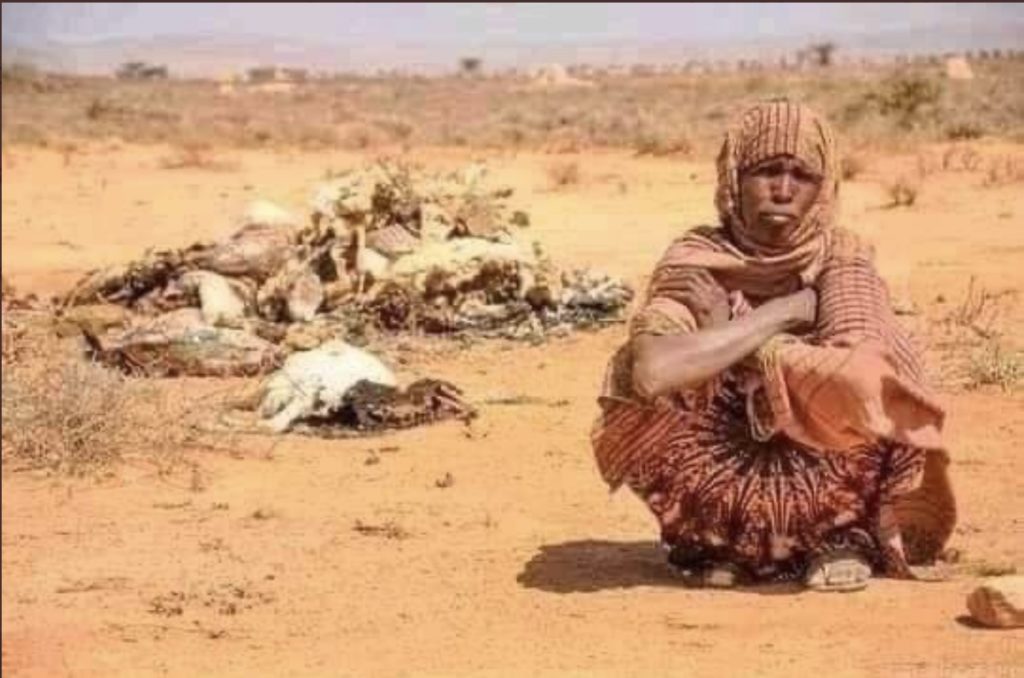
“…the tide of the battle against hunger has changed for the better during the past three years. But tides have a way of flowing and then ebbing again. We may be at high tide now, but ebb tide could soon set in if we become complacent and relax our efforts. For we are dealing with two opposing forces, the scientific power of food production and the biologic power of human reproduction. Man has made amazing progress recently in his potential mastery of these two contending powers.
“But [man] is not yet using adequately his potential for decreasing the rate of human reproduction. The result is that the rate of population increase exceeds the rate of increase in food production in some areas.
“There can be no permanent progress in the battle against hunger until the agencies that fight for increased food production and those that fight for population control unite in a common effort.”
Norman Borlaug, 1970, Nobel Prize Acceptance Speech
The North American southwest is experiencing the worst drought in over 1200 years, endangering the livelihood of millions of people. In contrast, in Africa, where many people already live on the edge, the risk is to their lives.
Here, there is less snow, and it is melting sooner. Rivers are running low and reservoirs are shallow. Ranchers and farmers are suffering from the drought. We know that half of our megadrought is due to climate change. Furthermore, we know climate change is largely due to CO2 from using fossil fuels.
In many places, Africans are also experiencing drought. Paradoxically, there is destructive flooding elsewhere in Africa. Drought there is not because Africans are using lots of fossil fuels, of course. The average annual income of a person in Sub-Saharan Africa 1/15th that of the average American; we consume much, much more. People in Africa simply cannot afford the extravagance of fossil fuels we take for granted.
It seems unfair that our consumptive lifestyle should lead to famine in other parts of the world, but it is difficult to escape that conclusion.
However, some of the responsibility for the famine in Africa may rest on the shoulders of a Nobel Prize laureate for peace, although he certainly warned us about growing population in the quote above. Norman Borlaug has been called the father of the Green Revolution because he developed agricultural innovations that increased crop productivity markedly. More food allowed populations to increase—when there was adequate rainfall. However, more productivity has its costs. Expensive non-native seeds must be purchased, and more productive plants required chemical fertilizers, herbicides and other chemicals to grow, yet often depleted the soil.
Now, with more people and less rain, crops are failing. People have debts that they cannot pay. Animals are dying from thirst and lack of forage. There is an excellent but sad report in the NYTimes on the famine: “’We Buried Him and Kept Walking’: Children Die as Somalis Flee Hunger”. I had to turn away before finishing.
The African famine reminded me of the great question that faces scholars of Southwestern archeology: why did the Ancestral Puebloans leave the Four Corners region? A series of wet years preceding the departure allowed the population to grow. It is likely that the human population overshot available sustenance during the megadrought of the 1250s. Did the people move because of famine? This theory is supported by evidence of severe strife and bloodshed before the exodus.
Should we help Africa with food relief? Unfortunately, that would encourage people to congregate near food distribution centers, away from farms. Even though relief will save lives in the short run, it will make people more dependent on foreign aid, and won’t solve the problem of overpopulation. I don’t know what the most humane thing to do is. Perhaps we should follow the advice of a friend who only donates to relief agencies that also provide family planning.
© Richard Grossman MD, 2022